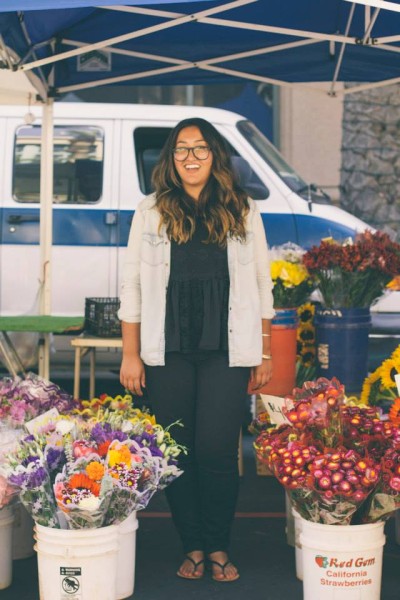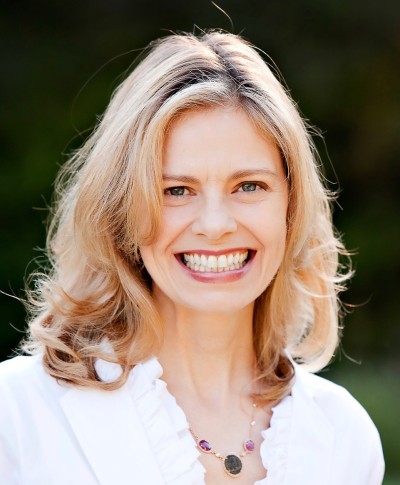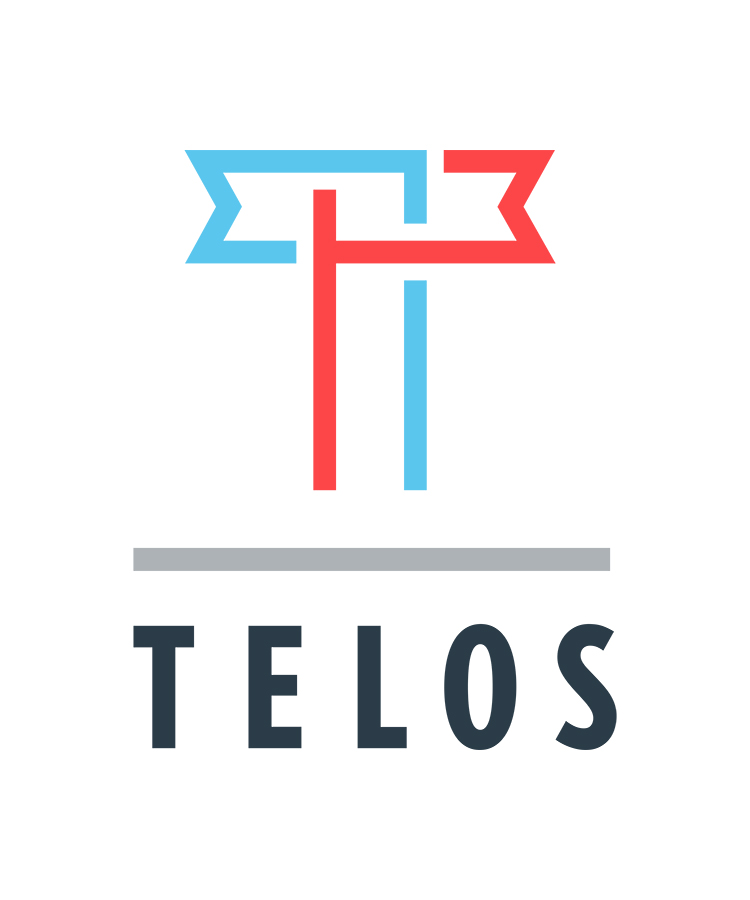Hope is What We Do: Giving in Hope
The challenges facing our country and the Middle East have rarely felt more complex or dangerous. Extraordinary challenges require an extraordinary response. Over the next three weeks, we’ll hear from people in the Pro/Pro/Pro network who are responding by giving, creating, and speaking into the world around them in hopeful ways.
These people represent just a fraction of all of you: the Pro/Pro/Pro community that has collectively contributed so much to this vital work of building communities of peacemakers, whether you give $10 a month or $10,000.
This week, we want to listen to four members of our community who’ve generously shared their views on why they give financially, in hope of a better future. Please consider joining them by making a donation to Telos to help grow the Pro/Pro/Pro community by raising $100,000 by year’s end.
The following interviews have been edited for length and clarity.
Erika Abdelatif
“If I really believe a better world is possible, I better show up and give—sacrificing both time and money.”
Why give?
 I give financially because I believe we have a moral obligation to create a more responsible, compassionate world. Positive change rarely happens without purpose and intentionality. So, if I really believe a better world is possible, I better show up and give—sacrificing both time and money.
I give financially because I believe we have a moral obligation to create a more responsible, compassionate world. Positive change rarely happens without purpose and intentionality. So, if I really believe a better world is possible, I better show up and give—sacrificing both time and money.
Why Telos?
I think the message of Telos is probably more important today than ever. Given the circumstances in the region, as well as the growing divide in our own country, it’s more important than ever that we make a habit out of being peacemakers—personally and politically.
It’s crucial that we listen and share with our neighbors. It’s crucial that we step up and take action, and engage with our representatives. It’s crucial that we’re actively involved in building a more understanding, loving place for everyone to live.
I believe Telos is actively working toward shifting our cultural mindset, in a way that our society desperately needs. I can say, personally, that having gone to the region and knowing Greg & Todd has changed and shaped who I am today. That’s why I give.
Has the act of giving changed you?
Haha! Yes. Giving always makes me question what I really value in life—especially when it’s an automatic deduction. I would definitely love some extra cash in my bank account, but ultimately, giving forces me to take account of my values. It forces me to keep my eyes on the big picture.
I’d also feel like it’s important to say that I really don’t give that much. Full disclosure, I think I give Telos about $15 a month. Does that break me? Absolutely not. But it’s a commitment, and if everybody committed to give even a little, we’d go SO much further.
Honestly, if you’re on the fence: give organizations you love $5 or $10 a month. You’ll be making a difference, and you’ll still have capacity to give to your friend who going on mission, or to disaster relief, or any emergency funds that arise. If the thought of that stresses you out, just give yourself a year. Re-evaluate your commitment after a year, and you’ll probably feel great about what you committed.
What is hope?
Hope, to me, is the belief that my investment, persistence, and time will yield a reward—ensuring I leave the world in better shape for future generations. And if I really believe a better world is possible, I ought to do my part to chip in.
What gives you hope?
People like Greg and Todd, who persist—even in the face of great opposition! Comedy! Spending time with loved ones! I also have a lot of plants in my house, and that helps.
Deirdre Hegarty
“Hope is a renewable resource… and I see small signs that larger changes are afoot.”
Why give? 
I grew up in a family that occasionally relied on the safety net of food stamps, reduced-fee programs, and financial aid. Starting with my first paycheck after I graduated from college, I directed a portion of my income to United Way. I designated those contributions to go to a local organization that I had benefitted from while in college. I was given the support I needed by people who didn’t even know me, and that feeling of gratitude has stayed with me. I’ve been motivated to give back what was so generously given to me.
If I think about the most broad definition of philanthropy, which is the desire to promote the welfare of others, then I believe we are all philanthropic. Whether we give of our time, our skills, or donations of money, the desire to advance the public good is something we all share.
Why Telos?
I took my first trip to the region in 2007 and was immediately struck by how different the reality was on the ground as compared to the media narrative that had shaped my understanding of the issues for so long. I returned home with a sense of deep unease. I simply could not unsee what I had seen and I felt a growing sense that I needed to add my voice to those calling for a peaceful resolution of the conflict. I began to see the sides not as “Palestinians vs. Israelis” but rather, as those who were fine with the status quo and those who sought a real resolution, one that would require deep concessions by all parties to reach a lasting peace. Given my limited resources of time, skill, and money, I’ve chosen to direct my contributions to organizations that see a future of dignity and rights for all people and who work to amplify the voices of those who struggle nonviolently, and often without fanfare and attention.
I’ve chosen to support Telos, with financial contributions, by working with Greg and Todd to bring others to the region, and also by participating in activities that support the organization because I believe in their message: that the path forward requires that we act in ways that are pro-pro-pro. I respect their courage in taking a different stand, finding a middle way, and doing the long-term work that will change the conversation and change the culture as it relates to this issue. They are incredibly thoughtful in their approach, respectful of different points of view and committed to helping people walk through the complexity, rather than reducing the situation to sound bites. They have built an incredible community and it is a privilege to work with them.
Has the act of giving changed you?
The act of giving has absolutely changed me. The more I involve myself with organizations like Telos and I see what others are doing to make a difference, the more I recognize that I know just a little. I am constantly humbled by the contributions that others are making, constantly amazed by the courage I see others displaying, and it causes me to dig just a little bit deeper, to think a little bit more, and to do my very best. The more I learn about the challenges that others are facing, the more I’m able to put things in perspective.
What is hope?
I define hope as the possibility for change. And I do believe, very firmly, that even in the Palestinian-Israeli context, which has seemed impervious to change, that there is tremendous hope. I think hope is critical to financial giving because people don’t like to direct resources to areas that seem hopeless. However, spending any time at all with Palestinian and Israeli activists who are working for a rights-respecting future for all gives me all the hope I need. If they have not lost hope, then I simply cannot afford to lose hope either.
What gives you hope?
Ironically, my trips to the region give me hope. With the steady diet of hope-depleting coverage of extremists calling for no future for the other side, the future can look bleak. However, once I’m in the region, I re-connect with all that is going on, often with little or no coverage, to build that future from the grassroots up.
Going to the Telos conference and other gatherings where I can interact with fellow travelers also gives me hope, as does every conversation I ever have with Todd and Greg.
Hope is a renewable resource. I have tremendous confidence in human kindness and in the power of love and I see small signs that larger changes are afoot. I think about the fall of the Berlin wall and the breakup of the Soviet Union and I recognize that some of our longest-running conflicts changed in small ways we couldn’t see and one day, it all changed quite profoundly. I expect that will be the case in this conflict as well. We’ll only see in retrospect the small cracks that were disturbing the status quo and paving the way for a resolution of conflict.
Bretta Warren-Kim & Oliver Kim
“I’d say ‘practice’ is a key word, lest one think [giving] is ‘easy’.”
Why give?
Giving is a reflection of a ‘journey of generosity’ Ollie and I have been on with God for many years. Though some days it feels hard to remember things in this perspective, we feel that all we have comes from, and belongs to Him, and we practice being the best stewards of resources God channels through us with a growing spirit of generosity—monetary giving is only a part of that.
Why Telos?
We are on the lookout for compassion and justice related organizations, as well as those that we feel address their cause from a vantage point that ennobles the human spirit in a ‘preventative medicine’ sort of way. The solutions get at the ‘root or underlying cause’ of why breakdowns and problems exist.
We were captured by Telos’ vision of peacemaking in general, and the way Telos’ model is broadly applicable in all sorts of contexts, including the Middle East.
How has the act of giving changed you?
The act of practicing generosity of spirit, of which giving is a part, has certainly enhanced our relationship with God, shifted into better perspective the relationship we have with money, and beautifully grown our marriage. I’d say ‘practice’ is a key word, lest one could think it is ‘easy’, as sometimes it is not. I see it as part of a larger picture of growing in dependence on God for all things—including resources.
What is hope?
Faith and hope seem like they go together. Hope is a great desire or wish, a stirring in your soul that something can be true … and faith is kind of like the channel via which we believe that stirring can be realized because of and with God, if it is His will. I heard this on a Liturgists Podcast a while back, and it stuck with me:” Hopelessness is a privilege of privilege”.
What gives you hope?
Connection, the real kind, where people become tender and trusting enough to break down walls, barriers, and stereotypes. That’s free preventative medicine, but it doesn’t make it easy. Seeing the light in someone else, and allowing one’s one to also be seen—that’s hope and beauty. The simple, hard thing.

